REVISION EXERCISE (Objective Questions) (Assertion Reason questions) from MODERN PUBLISHERS CHEMISTRY (HINGLISH) HALOALKANES AND HALOARENES for Class 11
| Class 11 | CHEMISTRY |
| Chapter | HALOALKANES AND HALOARENES |
| MODERN PUBLISHERS CHEMISTRY (HINGLISH) | REVISION EXERCISE (Objective Questions) (Assertion Reason questions) |
| Medium | English |
| Academic Year | 2023-2024 |
Question 31
Alkylhalides have polar C-X bond and undergo nucleophilic substitution reactions. These give a variety of products with nucleophiles such as −OH,−OR,−NH2,−CN,−NC,−NO2,−ONO,RCOO−, etc. They undergo mainly two types of nucleophilic substitution reactions, SN1 and SN2. SN1 reactions are two steps reactions which proceed through the formation of carbocations while SN2 reactions are one step reaction which proceeds through the formation of transition state. The stability of carbocation and transition state determine the reactivity of alkyl halides.
Write the main products A and B in the following reaction.
AKNO2←−−−CH3CH2BrAgNO2−−−→B.View SolutionQuestion 32
Alkylhalides have polar C-X bond and undergo nucleophilic substitution reactions. These give a variety of products with nucleophiles such as −OH,−OR,−NH2,−CN,−NC,−NO2,−ONO,RCOO−, etc. They undergo mainly two types of nucleophilic substitution reactions, SN1 and SN2. SN1 reactions are two steps reactions which proceed through the formation of carbocations while SN2 reactions are one step reaction which proceeds through the formation of transition state. The stability of carbocation and transition state determine the reactivity of alkyl halides.
Complete the reaction:
CH3CH2BrAg2O−−→HeatView SolutionQuestion 33
Alkylhalides have polar C-X bond and undergo nucleophilic substitution reactions. These give a variety of products with nucleophiles such as −OH,−OR,−NH2,−CN,−NC,−NO2,−ONO,RCOO−, etc. They undergo mainly two types of nucleophilic substitution reactions, SN1 and SN2. SN1 reactions are two steps reactions which proceed through the formation of carbocations while SN2 reactions are one step reaction which proceeds through the formation of transition state. The stability of carbocation and transition state determine the reactivity of alkyl halides.
Arrange the following in the increasing order of reactivity towards SN2 reaction:
 View Solution
View SolutionQuestion 34
Alkylhalides have polar C-X bond and undergo nucleophilic substitution reactions. These give a variety of products with nucleophiles such as −OH,−OR,−NH2,−CN,−NC,−NO2,−ONO,RCOO−, etc. They undergo mainly two types of nucleophilic substitution reactions, SN1 and SN2. SN1 reactions are two steps reactions which proceed through the formation of carbocations while SN2 reactions are one step reaction which proceeds through the formation of transition state. The stability of carbocation and transition state determine the reactivity of alkyl halides.
Write the structure of isomer of compound C4H9Br which is most reactive towards SN1 reaction.View SolutionQuestion 35
Alkylhalides have polar C-X bond and undergo nucleophilic substitution reactions. These give a variety of products with nucleophiles such as −OH,−OR,−NH2,−CN,−NC,−NO2,−ONO,RCOO−, etc. They undergo mainly two types of nucleophilic substitution reactions, SN1 and SN2. SN1 reactions are two steps reactions which proceed through the formation of carbocations while SN2 reactions are one step reaction which proceeds through the formation of transition state. The stability of carbocation and transition state determine the reactivity of alkyl halides.
Which out of SN1 or SN2 results into inversion of configuration?View SolutionQuestion 103
Following compounds are given to you :
2-Bromopentane, 2-Bromo-2-methylbutane, 1-Bromopentane
(i) Write the compound which is most reactive towards SN2 reaction
(ii) Write the compound which is optically active
(iii) Write the compound which is most reactive towards β-elimination reaction View SolutionQuestion 109
(a) Complete the reaction:
(i) CH3CH2BrAgCN−−−→
(ii) CH3CH2BrNa−−−−−→Dry ether
(b) During the B-elimination reaction of 2-bromopentane in an alcoholic solution of KOH results pent-2-ene as major product and pent-1-ene as minor product. State the rule to explain the reaction.View SolutionQuestion 110
(i) Out of (CH3)3, C-Br and (CH3)3 C-I, which one is more reactive towards SN1 and why?
(ii) Write the product formed when P-nitrochlorobenzene is heated with aqueous NaOH at 443K followed by acidification.
(iii) Why dextro and laevo-rotatory isomers of Butan-2-ol are difficult to separate by fractional distillation?View Solution
All Exercises from MODERN PUBLISHERS CHEMISTRY (HINGLISH) Class 11 CHEMISTRY HALOALKANES AND HALOARENES
- PRACTICE PROBLEMS
- CONCEPTUAL QUESTIONS
- NCERT EXAMPLAR PROBLEMS (ASSERTION AND REASON TYPE QUESTIONS)
- NCERT EXAMPLAR PROBLEMS (MATCHING TYPE QUESTIONS)
- NCERT EXAMPLAR PROBLEMS (MULTIPLE CHOICE QUESTIONS (TYPE-I))
- NCERT EXAMPLAR PROBLEMS (MULTIPLE CHOICE QUESTIONS (TYPE-II))
- NCERT EXAMPLAR PROBLEMS (SHORT ANSWER TYPE QUESTIONS)
- NCERT IN-TEXT QUESTIONS
- NCERT TEXTBOOKS EXERCISE
- NCERT TEXTBOOKS EXERCISES
- MEMORY TEST (A. SAY TRUE OR FALSE)
- MEMORY TEST (B. COMPLETE THE MISSING LINKS)
- MEMORY TEST (C. CHOOSE THE CORRECT ALTERNATIVE)
- REVISION EXERCISE (LONG ANSWER QUESTIONS)
- REVISION EXERCISE (OBJECTIVE QUESTIONS) (ASSERTION REASON QUESTIONS)
- REVISION EXERCISE (OBJECTIVE QUESTIONS) (MULTIPLE CHOICE QUESTIONS)
- REVISION EXERCISE (OBJECTIVE QUESTIONS) (PASSAGE BASED QUESTIONS)
- REVISION EXERCISE (SHORT ANSWER QUESTIONS)
- REVISION EXERCISE (SHORT ANSWER QUESTIONS) (CBSE QS....)
- REVISION EXERCISE (VERY SHORT ANSWER QUESTIONS)
- REVISION EXERCISE (VERY SHORT ANSWER QUESTIONS) (CBSE QS....)
- HIGHER ORDER THINKING SKILLS
- A. MULTIPLE CHOICE QUESTIONS (WITH ONLY ONE CORRECT ANSWER)
- B. MULTIPLE CHOICE QUESTIONS (FROM COMPETITIVE EXAMINATIONS)
- C. MULTIPLE CHOICE QUESTIONS (WITH MORE THAN ONE CORRECT ANSWERS)
- D. MULTIPLE CHOICE QUESTIONS (BASED ON THE GIVEN PASSAGE / COMPREHENSION)
- INTEGER TYPE QUESTIONS
- UNIT PRACTICE TEST
- SOLVED EXAMPLES

 which of the following is the correct order of C-halogen bond length?
which of the following is the correct order of C-halogen bond length?
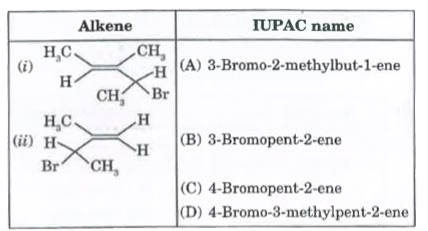
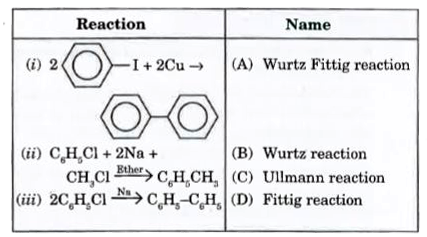
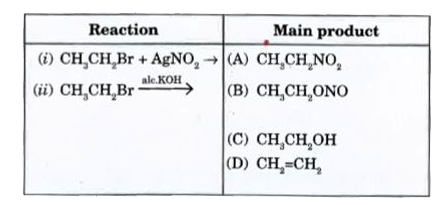
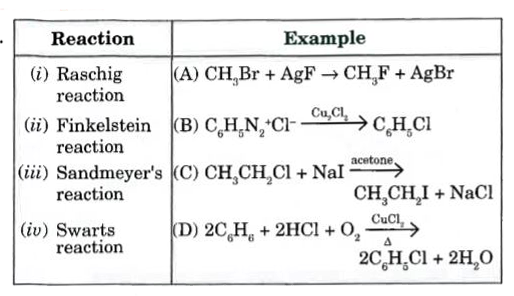
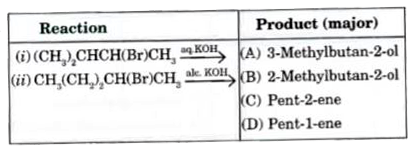


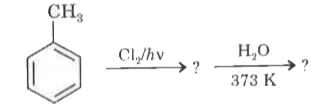


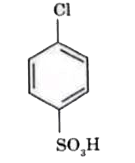
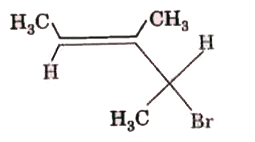
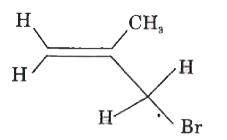
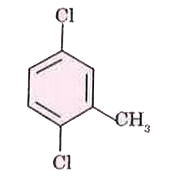

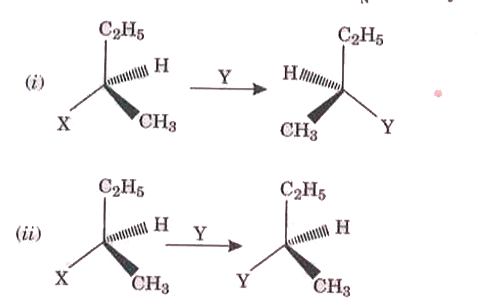
 , which is an example of a benzylic halide?
, which is an example of a benzylic halide? , which is an example of vinylic halide?
, which is an example of vinylic halide? , which is an example of allylic halide?
, which is an example of allylic halide?